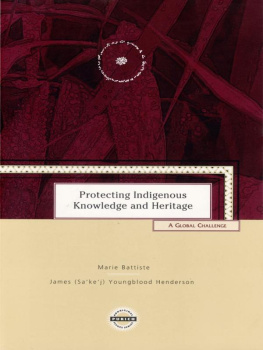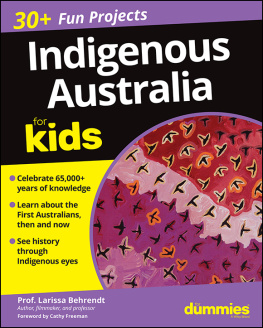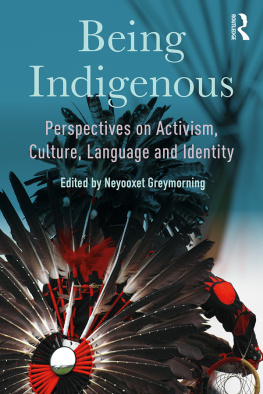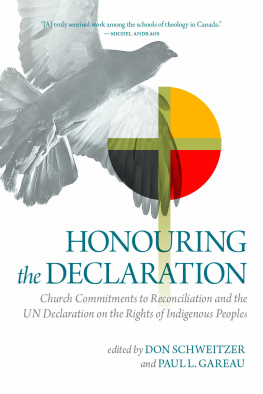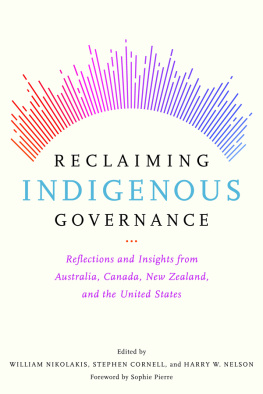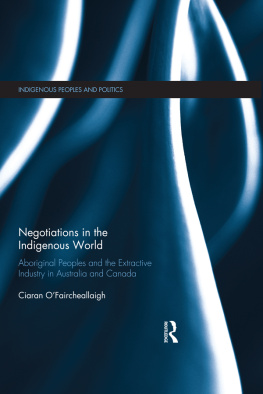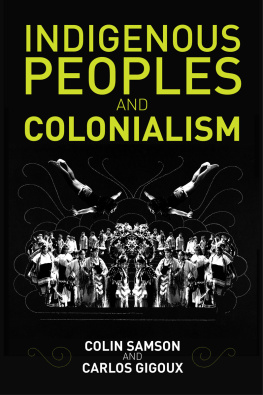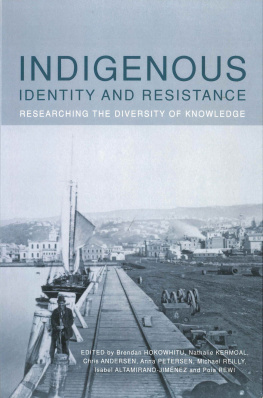Protecting Indigenous Knowledge
and Heritage
Purichs Aboriginal Issues Series
Protecting Indigenous Knowledge
and Heritage
A Global Challenge
Marie Battiste
and
James (Sakej) Youngblood Henderson
Purich Publishing Ltd.
Saskatoon, Saskatchewan
Canada
Copyright 2000 Marie Battiste and James [Sakej] Youngblood Henderson
All rights reserved. No part of this book may be reproduced or transmitted in anyform or by any means without permission in writing from the publisher, except by areviewer, who may quote brief passages in a review, or in the case of photocopying orother reprographic copying, a license from CANCOPY (Canadian Copyright LicensingAgency) in Toronto.
Canadian Cataloguing in Publication Data
Battiste, Marie, 1949
Protecting indigenous knowledge and heritage : a
global challenge
(Purichs aboriginal issues series)
Includes bibliographical references and index.
ISBN 1-895830-15-X
1. Indigenous peoples--Legal status, laws, etc.
2. Ethnoscience. 3. Eurocentrism. I. Henderson,James Youngblood. II. Title. III. Series.
GN380.B38 2000 306.08 C00-920064-9
Editing, design, and page layout by Page Wood Publishing Services, Saskatoon
Index by Geri Rowlatt, Victoria
Cover design by NEXT Communications, Inc., Saskatoon
Printed in Canada by Printcrafters, Winnipeg
Printed on acid-free paper
We gratefully acknowledge the assistance of the Government of Canada through theCanada Book Fund, and the Creative Industry Growth and Sustainability Programmade possible through funding provided to the Saskatchewan Arts Board by theGovernment of Saskatchewan through the Ministry of Tourism, Parks, Culture andSports for our publishing program.
Purich Publishing Ltd.
PO Box 23032 Market Mall Postal Outlet
Saskatoon, SK S7J 5H3 Canada
www.purichpublishing.com; purich@sasktel.net
Erratum: portions of paragraph 1 on page 12 are from Greaves, Thomas. 1996 TribalRights. In Valuing Local Knowledge: Indigenous People and Intellectual PropertyRights, Island Press, Washington, DC. eds. Stephan Brush and Doreen Stabinsky.
Contents
Part I
The Lodge of Indigenous
Knowledge in Modern Thought
Part II
Towards an Understanding of the Rights of
Indigenous Peoples to Their Knowledge and Heritage
Part III
Existing Legal Rgimes and Indigenous Knowledge and Heritage
Part IV
The Need for Legal and Policy Reforms
to Protect Indigenous Knowledge and Heritage
Part V
Conclusion
The authors gratefully acknowledge all those who have made this book possible. We are especially grateful to Russell Barsh, Leroy Little Bear, Shelley Wright, and Erica-Irene Daes, lawyers, scholars, and friends who provided research, analysis, and written texts in earlier studies and discussions on these issues. We thank Elizabeth Maier for her reference checks and work on the bibliography.
Special thanks are extended to Professor Len Findlay of the English Department at the University of Saskatchewan and Dr. Isobel Findlay of Commerce Communications for their astute appraisals and editing of an early draft of this book, for their valued suggestions, and for their continuous support in the many stages of this project; to Jane Billinghurst of Page Wood Publishing Services for her copious editing of the manuscript; to our extended community who shared their support, advice, and laughter during many needed times; and to our children, Jaime Youngmedicine, Mariah Sunday Lace, and Annie Wintersong, whose understanding and support for our collective Indigenous community have made it possible for us to do the much-needed work.
Empire has located its existence not in the smooth recurrent spinning time of cycles of the seasons but in the jagged time of rise and fall, of beginning and ends, of catastrophe. Empire dooms itself to live in history and plot against history. One thought alone preoccupies the submerged mind of Empire: how not to end, how not to die, how to prolong its era. J.M. Coetzee, Waiting for the Barbarians (1980, 133)
A brief history of the struggle for Indigenous rights through the mechanism of the United Nations shows how urgent the need is for a better understanding of the relationship between Indigenous knowledge and Eurocentric thought, and illustrates some of the dilemmas in which we find ourselves as we seek to build some measure of understanding between these two very different ways of viewing the world. It also explains the perspectives of the authors as they embark on writing this book.
The UN Universal Declaration of Human Rights in 1948 was viewed by Indigenous peoples as a tool for decolonizing our oppressed lives. For the first time in history, the equal and inalienable rights of all members of the human family were asserted and recognized as the foundation of freedom, justice and peace in the world. The statement of principles in the Universal Declaration was transformed into two legally binding agreements: the International Covenant on Economic, Social and Cultural Rights and the International Covenant on Civil and Political Rights. Those member-states who signed and ratified these agreements agreed to uphold the rights and freedoms defined by the covenants in their own states. The first article in both covenants asserts that [a]ll peoples have the right of self determination. By virtue of that right, all peoples have the right to freely determine their political status and freely pursue their economic, social and cultural development. In answering the question of where universal rights begin, the chair of the UN Human Rights Commission, Eleanor Roosevelt, stated that universal rights begin in the places where every man, woman, and child seeks equal justice, equal opportunity, equal dignity without discrimination. Unless these rights have meaning there, they have little meaning anywhere. Without concerned citizen action to uphold them close to home, we shall look in vain for process in the larger world (Lennox & Wildeboer 1998, 7).
In the 1950s and 1960s, practically every colony in Asia, Africa, and Oceania availed itself of the right of self-determination and opted for political independence. A few colonies chose incorporation or free association with member-states. These decisions were the colonizers choices, since most of the colonized Indigenous peoples were not given the right to self-determination or other human rights (Anaya 1996). Despite the move by previously colonized countries toward self-determination, it was clear that governments were not extending human rights to Indigenous peoples. By the middle of 1970, Indigenous lawyers and leaders around the world attempted to have the international and national regimes respond to the growing crisis in human rights. One result was the international Indigenous network.
The network began as a talking circle in which Indigenous peoples discussed their failure to persuade governments to extend human rights to Indigenous peoples. The network was botanical in structure and operation. Liberation was defined, to the extent it ever was defined, as cultural and physical survival. The network was a manifestation of continued resistance to colonization, and it combined efforts that had been going on in isolation for many generations. The idea slowly arrived that Indigenous peoples needed a safe and peaceful place to meet, to talk, and to grow. We needed to extend our kinship and relationships.
We were the unofficially colonized peoples of the world, the tragic victims of modernization and progress. In every state and educational system, we were underrepresented or, more often, ignored. We were the forgotten peoples. Our daily wretchedness, violent deaths among our peoples, and our powerlessness to remedy our situations drove us to the United Nations, which had a long list of international treaties and convenants that could assist our survival. We sought to understand why the UN human rights covenants or the provisions of UNESCO (the United Nations Educational, Scientific and Cultural Organization) had never been used to protect us. Eventually, the United Nations responded to our questions and created the Working Group on Indigenous Populations in Geneva.
Next page
